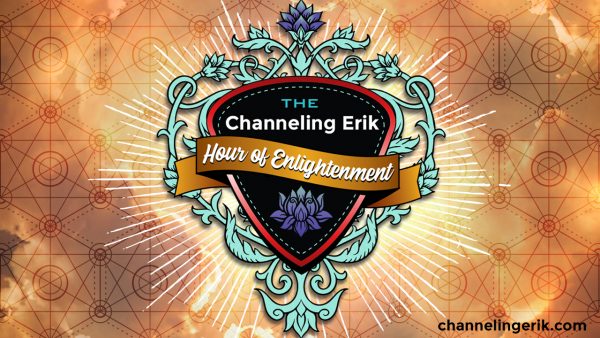I have a question for you guys. What kind of reality TV show would you watch with Jamie, Erik and I in it? There are so many possibilities, so I want your input! Ponder that after you read Part Two of Three of the Suicide and Loss series.
Me: All right. How do you know if it was a mistake or destiny if you kill yourself?
Erik: You know it the moment you arrive.
Me: Okay, so I guess it could be like, “Oops” or it’s like, “All right! Made it!” How can we prevent ourselves from taking our lives? In other words, how can we get help if we have suicidal ideation? That’s kind of an obvious one—seek the help of a mental health professional, call the suicide hotline, etc. –but for example Erik, you had all these resources. You even had the cell phone number of your therapist, but you didn’t do it. You didn’t call for help. How can you, as a person, get help?
Erik: I got years of help.
Me: Yeah. You sure did.
Erik: It wasn’t like, “Today I want to commit suicide so I guess I’ll go ahead and do it.” Jamie mimics his happy face.
Me: Happy face!
Erik: I thought about death before on several occasions and discussed it with other people, so in my case, I did the logical thing and weighed my options. I felt at peace with the idea of leaving. That was the way of death that attracted me the most. I knew this ending would create a joy, a release, and I was right.
Me (crying a little): Yeah.
Erik: I think for those who are thinking about suicide and they think they want to just go ahead and do it and they haven’t talked to a stranger or a therapist or a friend and heard feedback and really gotten in the community to find out what their ideas were based on or not based on, I think they’re missing out. I think that they think of suicide and choose it immediately, when they arrive, they’ll see where they missed the boat. For us, even Robin Williams who we talked to, he had decades of thinking about death and leaving. It was not some fleeting moment that he played upon. And when you read the stories of people committing suicide and they tried before or talked about it before and had issues with it before, put a smile on your face. This person found their answer and had the balls enough to give that relief to themselves. We need to stop condemning this shit. We need to start looking at it as what it is. It’s an option that doesn’t value life any less. I hope that sits heavy in your head. It doesn’t give—
Jamie sighs and makes the talking hand gesture in a way that says Erik is talking a mile a minute.
Jamie: He’s boiling with it. Hold on. He wants it to sit with everyone who’s watching (or reading) this that if someone chose to take their life, they didn’t value life any less than anyone else. It took more courage to step out of their lives than to stay in it.
Me: All right, well you’re not condoning suicide are you?
Erik: I’m accepting of suicide. I’m not condoning it because it’s not the answer for everybody, like it’s not the answer for everybody to smoke pot.
Me: Right.
Jamie starts to talk. I’ve clearly interrupted her.
Me: Oh, go ahead.
Jamie: No, he was totally off topic. Go ahead.
Me: Yes it is and that’s typical. What do you say to people who’ve lost somebody to suicide? What do you recommend for them?
Erik: Isn’t it true that the first words you hear are, “I’m so sorry for your loss?”
Me: Yeah.
Erik: What does that really even mean? You’re “sorry” for the “loss.” First of all, there is no loss—okay a physical one, yeah, but you didn’t lose the person after they died. They transitioned. I don’t know why you’d be sorry for them because it’s obviously what the person really, really wanted. In away, it’s a form of achievement. Sorry I put it that way. I know I’m really going to piss people off, but I was in those shoes, so I can at least say that, right?
Me (sadly): Yeah. No trophy on the mantle though. Please.
Erik: No, no. This is not like a trophy thing, but for those of you who are coming across people who are living who have had a family member, partner or friend take their own lives, acknowledge them. Just say, “Oh”—and say their name and acknowledge that they’ve transitioned, but why are you apologizing? Nobody needs an apology. Nobody needs pity while you’re in a moment of grief or not understanding what has happened. Show support. Say, “I’m here if you need anything.”
Me: There we go. That’s perfect. I didn’t like it when they say, “But you’ve got other children,” or when they say, “Just move on!”
Jamie laughs, but I don’t know why.
Me: I just don’t like that.
Erik: I don’t care how a person die; it’s not about moving on and forgetting them because that’s really what they mean. It’s about reaching out and showing support like, “Hey, if you want to talk about Erik, I’d like to listen.” You know, hey, they transitioned. It’s going to be a change.
Me: Yeah.
Erik: And it’s okay to admit to someone, “I don’t know what the fuck to say. I don’t know what to say to you, but I’m here; I’m available. I can’t imagine what it feels like. Here’s my hug.”
Me: I wish more people had done that for me.
Erik: Yeah, where’s the support? Why do people just take grief and then dump sorrow on top of it? It’s maddening to even think about it.
Me (crying softly): I know. I lost a lot of friends.
Erik: Yes.
Me; I guess they were really uncomfortable.
Erik: Yeah, and oh, and then how great is it that, um, —
Jamie listens and then says, “Oh, that’s said sarcastically.
Erik: Like three months after or a year after when you want to talk about me and the person’s like (Jamie mimics a facial expression of a person being completely poleaxed like they’re trapped and want to escape.)
Me: I know.
Erik: They don’t know how to handle it. Relationships can carry on, even after death. (Leaning back in his chair): A whole lot of people are missing out on a while lot of love.
Me: Yeah. That’s a shame.



